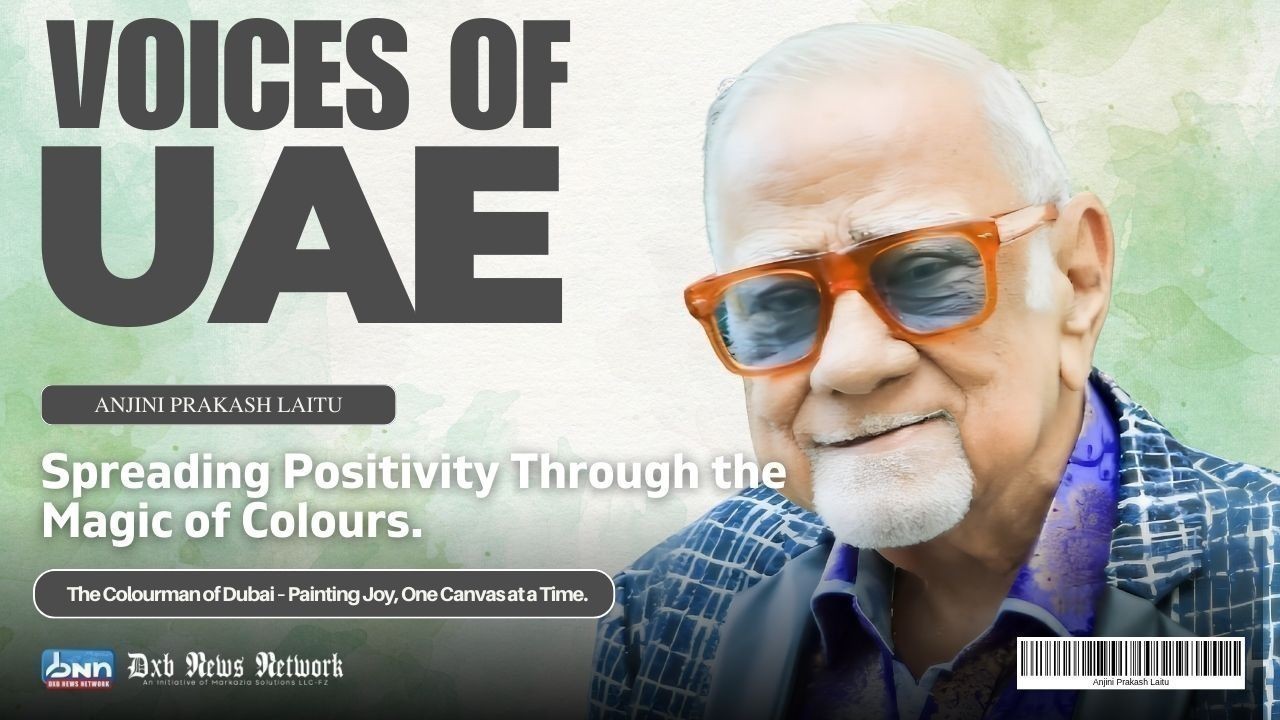
Post by : Anish
In an increasingly digital financial world, banking apps were supposed to represent ease, speed, and transparency. But for millions of users worldwide, that promise is starting to fade. Whether it’s suspicious transactions, locked accounts, poor app responsiveness, or the overwhelming difficulty in reaching real customer support, many are beginning to see these apps as liabilities rather than tools of convenience.
This isn’t just happening in one region or market — it’s global. From the United States to the UAE, across Asia, Europe, and Africa, people are expressing a growing distrust in the very apps they once used daily for checking balances, transferring funds, and managing loans. What's fueling this global discontent, and can the fintech industry course-correct in time?
One of the most significant reasons people have started turning away from banking apps is the surge in cyberattacks. Phishing scams, data leaks, unauthorized transactions, and breaches are being reported with unsettling regularity.
In 2024 alone, major banks in Europe and Southeast Asia admitted to vulnerabilities that affected millions. Even after those announcements, many institutions downplayed the incidents or shifted blame onto users for not securing their devices properly — a move that only deepened public frustration.
Unlike traditional banking, which offers in-person accountability, the digital banking model is often faceless. When money goes missing or accounts are frozen, customers frequently have no one to turn to but automated chatbots or delayed email responses. Trust, once lost, is hard to regain.
One of the unintended consequences of digitizing banking is the loss of human interaction. In older systems, even if a transaction failed or fraud was suspected, a visit to the local branch could provide reassurance and resolution.
But with banking apps, users are often left in a loop of automated messages. Customer service hotlines have become understaffed or nonexistent. For elderly users, or those with limited digital literacy, resolving even minor issues becomes a nightmare.
This shift from human-centered service to algorithm-driven support is alienating a large segment of the population — and with each unresolved issue, more users are uninstalling apps and reverting to cash or offline banking.
Another flashpoint is the rise in unauthorized or erroneous deductions. Users report small, suspicious charges that are hard to track and even harder to contest. In some cases, it takes weeks to reverse such transactions, if at all.
Many digital banks and fintech platforms fail to offer real-time fraud alerts or have significant delays in notifying users about critical activity. This results in panic, especially for people living paycheck to paycheck or managing family expenses.
Even worse, not all platforms have reliable transaction history logs or dispute mechanisms. For many users, especially in emerging economies, these small deductions could mean the difference between affording food or not.
Banking apps require extensive permissions — from access to contact lists, messages, geolocation, to device information. While these are often justified as anti-fraud measures, users feel over-monitored and under-protected.
What happens to the data collected? Who has access to it? Can it be sold or shared with third parties? These questions remain largely unanswered, creating further mistrust. In many cases, the terms and conditions are intentionally convoluted, and users accept them without knowing they’ve waived significant privacy rights.
In regions with weak data protection laws, such practices can be exploitative, even dangerous.
Go to any app store and check the top banking apps — even the biggest names. You’ll find thousands of one-star reviews, often citing frustration, missing funds, technical glitches, or unresponsive customer care.
What’s interesting is that even loyal users are leaving negative feedback, stating they’ve been “long-time customers” but feel neglected or deceived.
This is not a fringe issue anymore; it’s a reflection of a widespread trust deficit. Many are calling for regulatory authorities to step in and audit these platforms, especially as they now serve as primary financial tools for millions.
Ironically, the very space fintech tried to dominate is now seeing users migrate to other options — including cash, e-wallets, and even crypto wallets in some regions. Peer-to-peer lending, community saving groups, and other traditional practices are experiencing a quiet resurgence.
Why? Because people want reliability. They want to see their money. They want to feel secure. And if apps can’t deliver on that front, users are more than willing to go analog again.
Most banking apps operate across borders, but regulation is still heavily localized. This means if a user in India faces fraud on a platform based in the UK, resolution is often a legal and logistical mess.
Global financial watchdogs are yet to establish a clear digital banking code that ensures uniformity in standards, penalties, and dispute resolution timelines. Until such frameworks exist, users remain vulnerable to varying levels of accountability — often none.
There’s another question lingering in the background: Who ensures that these banking apps are doing their job correctly? Who audits the code, investigates complaints, or verifies that customer data isn’t misused?
Too often, the responsibility lies with internal compliance teams or outsourced agencies. Public trust, however, demands more transparency — open audits, clear redressal pathways, and third-party watchdogs that report independently.
Without such oversight, banking apps will continue to operate in a gray zone — functional, but fragile.
For banks and fintech companies, the solution doesn’t lie in better advertising or shiny app redesigns. It lies in:
Better cybersecurity: Constant testing, real-time threat detection, and proactive user education.
Human-centered service: Live support, multilingual assistance, and faster complaint resolution.
Transparent data usage: Clear terms, opt-out policies, and consent-based access.
Global regulation: A unified digital finance framework that protects cross-border users.
Until these measures are in place, trust in banking apps will continue to erode.
We are at a pivotal point in digital finance. The convenience of mobile banking is undeniable — but convenience without trust is meaningless. If fintech hopes to survive, it must listen to users, not just shareholders.
Banking apps revolutionized how we manage money. Now, they must evolve again — not to be faster, but to be fairer, safer, and more humane.
This article is intended for informational purposes only. DXB News Network does not endorse or recommend any specific financial institutions or apps. Readers are encouraged to conduct their own research and consult professionals when making financial decisions.

Anjini Prakash Laitu: The Colourman of Dubai Who Paints Joy, Resilience, and Healing Through Art
Anjini Prakash Laitu, the “Colourman of Dubai,” spreads joy and healing through vibrant art.

The Americano Coffee History Taste and Global Popularity Explained
Discover the Americano coffee journey its rich history smooth taste health benefits and global p

DXB News Network Launches Illuminati Docu-Series name Whispers of Revolution Opens the Journey
Discover the Illuminati’s mysterious role in the French Revolution. DXB News Network launches a cine

Bangladesh Beats Sri Lanka by 4 Wickets in Thrilling Asia Cup 2025 Super 4 Match
Bangladesh beats Sri Lanka by 4 wickets in a thrilling Asia Cup 2025 Super 4 match with key performa

Maruti Suzuki Car Prices Slashed 2025 GST 2.0 Cuts Make Cars More Affordable
Maruti Suzuki cuts car prices up to ₹1.29L after GST 2.0 making Alto Swift Dzire Brezza & more a

Liverpool vs Everton 2025 Thrilling Merseyside Derby Packed with Drama & Passion
Liverpool vs Everton 2025 Merseyside Derby delivers intense action thrilling goals and unforgettab

Sky Diving Thrill Freedom and Adventure Beyond the Skies
Discover sky diving like never before thrill freedom and peace in one breathtaking adventure from

The Americano Coffee History Taste and Global Popularity Explained
Discover the Americano coffee journey its rich history smooth taste health benefits and global p

DXB News Network Launches Illuminati Docu-Series name Whispers of Revolution Opens the Journey
Discover the Illuminati’s mysterious role in the French Revolution. DXB News Network launches a cine

Bangladesh Beats Sri Lanka by 4 Wickets in Thrilling Asia Cup 2025 Super 4 Match
Bangladesh beats Sri Lanka by 4 wickets in a thrilling Asia Cup 2025 Super 4 match with key performa

Maruti Suzuki Car Prices Slashed 2025 GST 2.0 Cuts Make Cars More Affordable
Maruti Suzuki cuts car prices up to ₹1.29L after GST 2.0 making Alto Swift Dzire Brezza & more a

Liverpool vs Everton 2025 Thrilling Merseyside Derby Packed with Drama & Passion
Liverpool vs Everton 2025 Merseyside Derby delivers intense action thrilling goals and unforgettab

Sky Diving Thrill Freedom and Adventure Beyond the Skies
Discover sky diving like never before thrill freedom and peace in one breathtaking adventure from

India vs Australia Women ODI Series 2025 Records Rivalry and World Cup Build Up
India vs Australia Women ODI 2025 saw records upsets and rising stars setting the stage for an ex

Messi shines with brace as Inter Miami beats DC United 3-2
Lionel Messi scores twice and assists once, leading Inter Miami to a thrilling 3-2 win over DC Unite